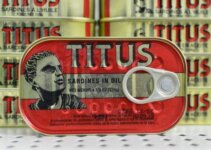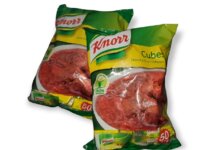Canola oil is a product obtained from the Canola plant. Over the years, several people have become wary about using this product because of certain health concerns. Regardless, experts still deem it healthy, if you can use it properly. As a result, it is still a very popular product on the market and has been used for several purposes.
The Nigerian market is filled with a range of canola oil products. What are these products and how much do they cost? Continue reading this post to find out the answer to this question and several others that may be on your mind.

Canola Oil Prices in Nigeria
Canola oil is mostly produced in Canada. It is obtained from a plant that has lots of similarities with the rapeseed plant. This product derives its name from “Canada” and “ola” which translates to “oil” in English. Canola oil is said to contain several nutrients that make it healthy for human consumption.
The question that begs an answer is, “How much does canola oil cost in Nigeria?” As mentioned earlier, there are different brands and container sizes of canola oil on the market today. Finding out all their prices might be quite difficult, so we have done it on your behalf. The list below contains some of the most popular canola oil products, their sizes, and prices.
- Carlini Pure Canola Oil 1.42 liters: From ₦6,000
- Carlini Pure Canola Oil 1.42 liters X2: From ₦11,000
- Carlini Pure Canola Oil 1.42 liters X4: From ₦23,000
- Hemani 6 Bottles Of Hemani Black Seed Oil – 125ml: From ₦21,000
- Organic Golden Jojoba Oil (cold Press) -120ml: From ₦6,500
- Hemani TUMERIC OIL (ESSENTIAL OILS) – 30ML: From ₦2,500
- Kirkland Signature Canola Oil 2.84L – 2 Units: From ₦25,000
- Kirkland Signature Canola Oil 2.84L – Pack Of 6 Units: From ₦80,000
- Kirkland Signature Canola Oil Cooking Spray 482g x2: From ₦6,500
- LIDL Canola Oil 1.42 Litres x3: From ₦16,000
- LIDL Carlini Pure Canola Oil 1.42 Litres: From ₦5,500
- Plochman Pure Canola Oil 5 Litres: From ₦18,500
- Wesson Canola Pure Oil 4.75 liters: From ₦22,000
- Wesson Pure & 100 Percent Natural Canola Oil – 4.73 Litres (x1): From ₦22,000
- Wesson Pure & 100 Percent Natural Canola Oil – 4.73 Litres (x2): From ₦42,000
- Wesson Pure & 100 Percent Natural Canola Oil – 4.73L (X4): From ₦84,000
- Wesson Pure & 100 Percent Natural Canola Oil 4.75 liters: From ₦22,000
- Wesson Pure & 100% Natural Canola Oil – Carton Of 4: From ₦84,000
- Wesson Pure Canola Oil 4.8L: From ₦22,000
PRICES LAST UPDATED: MARCH 1, 2024.
Explaining Canola Oil Manufacturing Process
Canola is among the most important oil seed crops in the world. It was first produced in Canada when scientists crossbred an edible type of the popular rapeseed plant. The crossbreeding process helped to remove erucic acid and glucosinolates, both toxic compounds, from the plant.
Canola and rapeseed plants share several similarities in looks but are different in nutrient content. This is why canola is a healthier option for human consumption. The process below shows how canola oil is manufactured:
Cleaning
Here, the seeds are thoroughly cleaned to rid them of pods, stems, weed seeds, and any other unwanted material from the harvesting process.
Heating and flaking
The seeds are passed through a machine for heating and flaking before extraction of the oil. This process requires the grain dryers to be at a slightly higher temperature so that the seeds don’t get shattered. The manufacturers then pass the seeds through a set of rollers so that the cell walls can rupture. After this, they flake the seeds to achieve the ideal level of thickness.
Cooking
This stage requires the canola seeds to pass through a series of heating drums or stacked cookers. It helps to rupture the cell walls further while raising the moisture and viscosity levels required for the remaining stages of the process. Cooking the seeds also ensures that the product doesn’t break down so that it doesn’t affect the final product quality.
Pressing
After cooking, the flakes pass through pressers or expellers for a process called “gentle pressing.” This stage rids the flakes of almost all the oil while compressing the rest of the seed into solid cakes.
Extraction
The solid cakes are passed through an extractor to remove the remaining oil with the help of a solvent known as “hexane.” This machine separates the oil from the solid cakes and recycles the hexane.
Refining and processing
Here, the oil goes through a refining process to improve its colour, shelf-life, and flavour. The manufacturer uses organic acids and water to rid the oil of fatty acids, lipids, gums, and fine metal particles. After this, the oil goes through a bleaching process to remove unwanted colour pigments. The manufacturer packages the products after this process and sends them out for consumption.
Health Benefits of Canola Oil
Experts regard canola oil as one of the healthiest plant-based oils for human consumption. It not only improves human health but also helps to reduce disease-related factors to the barest minimum. Below is the nutritional information of a tablespoon of canola oil:
- 124 calories
- 16% of the recommended daily intake (RDI)Trusted Source of vitamin E
- 9% of the RDI of vitamin K
Fatty acids per tablespoon:
- 03 g of total saturated fatty acids
- 14 grams (g) of total fat
- 94 g of total polyunsaturated fatty acids
- 86 g of total monounsaturated fatty acids
Several dieticians believe that canola oil should be labeled the healthiest edible oil ever. The reason for this is its fatty acid composition as well as the overall nutrient profile of this oil.
While canola oil has received so much praise from dieticians and other health experts, it is not void of its health risks. There are a few health risks attached to consuming too much canola oil. Some of them include:
- Inflammation
- Heart health.
- Memory
If you experience any of these side effects, we suggest that you stop using the oil immediately. You can switch to any of the alternatives such as:
- Coconut oil.
- Olive oil.
- Avocado oil.





